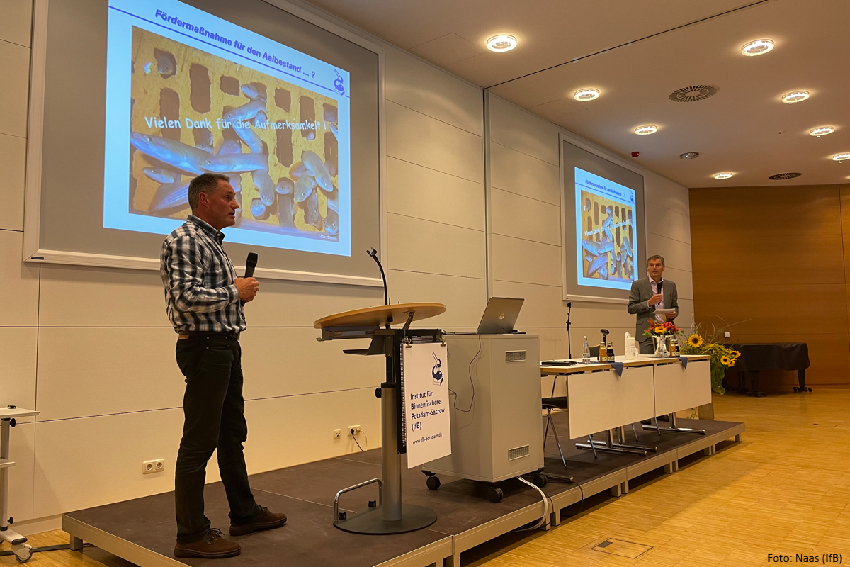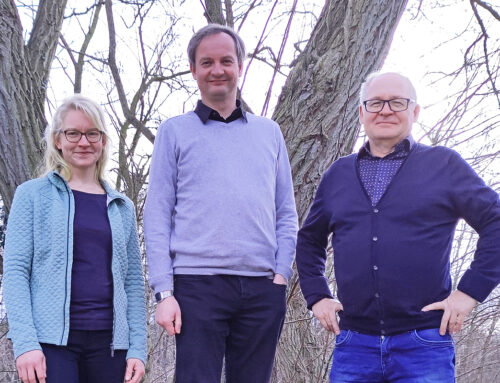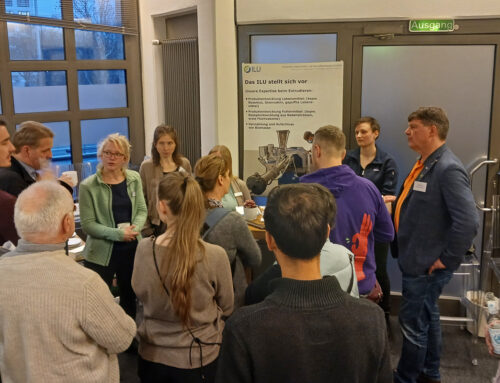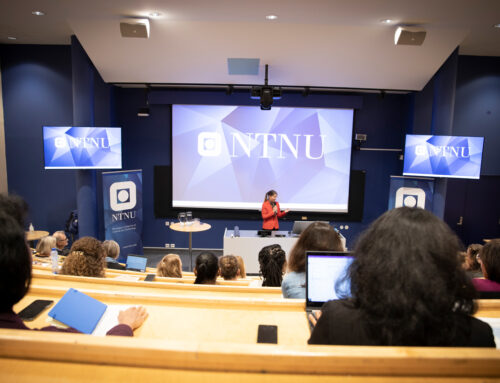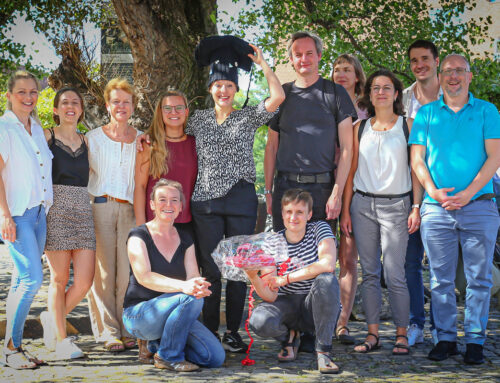The training event of the Institute of Inland Fisheries (IfB) e.V. Potsdam-Sacrow took place on 02 September 2021. After this annual meeting had to be cancelled in 2020, it could be organised again this year at the Heimvolkshochschule at Lake Seddin. The director of the IfB, Dr Uwe Brämick, opened the face-to-face event, which was attended by practitioners, scientists and representatives of the authorities.
During the event, current topics in fisheries and aquaculture were presented and discussed. For example, Dr Gerd Füllner from the Saxon State Office for the Environment, Agriculture and Geology (LfULG) spoke about the effects of summer water shortages on the productivity of carp ponds. In the event of a water deficit, for example, a pond flattens and thus loses productive pond surface area, which can influence yields. Daniel Hühn (IfB) then shed light on the causes of weather-related fish kills in lakes and gave recommendations for action. Using the example of a lake in Brandenburg, he explained how fish stocks develop after a mass die-off.
This was followed by two lectures focusing on the breeding and transport of fish. On the one hand, Christopher Naas (IfB) spoke about the possibilities and limits of using sodium chloride during the production of European pike-perch in closed recirculation systems, and on the other hand, Tamara Wind from the Baden-Württemberg Agricultural Centre (LAZBW) presented research results on optimising important water parameters during trout transport.
In addition, the fish master from Lake Gülper, Wolfgang Schröder, gave an insight into his fishing business and presented innovative fish products such as sour bream, bream burgers and bream mops. It should be emphasised that the farm won the federal prize “Too good for the bin!” this year.
The last thematic block of the training event was formed by two lectures on the European eel. First, Dr. Sven Bergmann from the Friedrich-Loeffler-Institut (FLI) spoke about the occurrence of various viruses in samples of wild and farmed eels. Then Erik Fladung (IfB) presented the 4th implementation report on Germany’s eel management plans. Based on current data, an increase in silver eel escapement is predicted for the next few years. However, incomplete implementation of the adopted measures may lead to a further delay of the targets.
Finally, the chairman of the IfB’s general meeting, Dirk Ilgenstein (President of the Brandenburg State Office for the Environment), bid farewell to the participants with a summary of the event.
The IfB would like to take this opportunity to thank both the lecturers for their contributions and the participants for their interested questions and the intensive discussion of the lecture contents. The next training event will take place on 25 August 2022 in Seddin. You are already cordially invited to attend.
About the IfB: The Institute of Inland Fisheries (IfB) is a scientific institution for application-oriented fisheries research in inland waters. The supporting states are Brandenburg, Saxony-Anhalt, Schleswig-Holstein and Thuringia. With its work, the IfB sees itself as a link between basic research and fisheries practice. The work of the institute is intended to serve the practice, consumers, the environment as well as professional policy makers. In addition, the IfB informs the public on the topics of fish, fisheries and aquaculture in inland waters.
